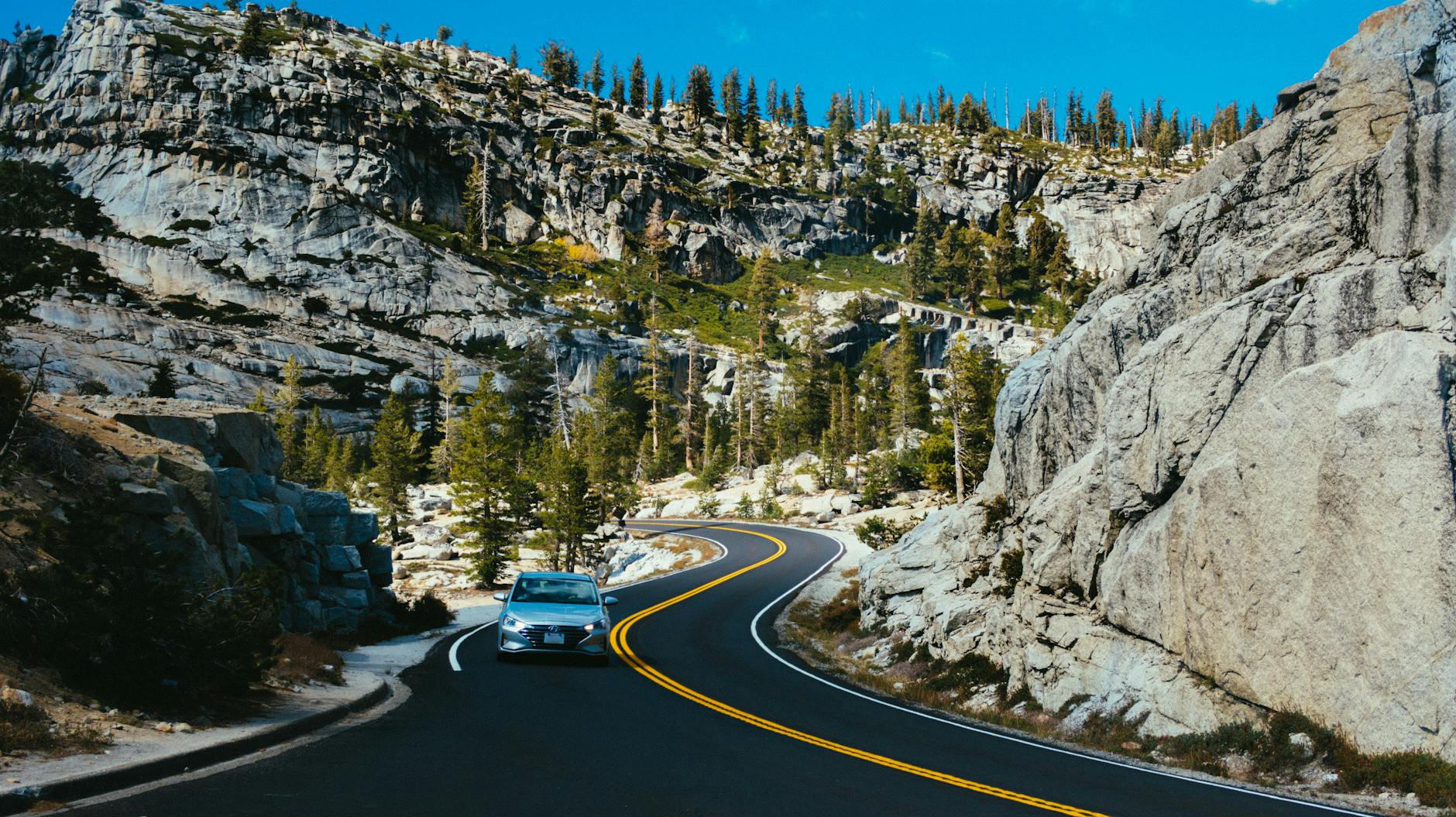How to Experience Australia with a Conservation Mindset

Plan Your Eco-Friendly Trip
When planning a journey that aligns with sustainable living principles, the focus extends beyond just the destination to include how you travel. Selecting eco-friendly options right from the outset can greatly contribute to conservation efforts. Here in Melbourne, initiatives like those at the Royal Botanic Gardens Victoria underscore the importance of integrating nature with responsible tourism, setting a global standard for sustainable travel practices.
Exploring options like Africa tours can be an enlightening experience, especially when conducted through sustainable means. Considering eco-friendly modes of transportation, such as trains or electric vehicles, can significantly reduce your carbon emissions compared to traditional options.
In Africa, you have the opportunity to participate in a Namibia safari or South Africa tours, where many operators prioritise eco-friendly practices. Opting for green accommodations that utilise solar energy or greywater recycling systems is another crucial step. This ensures that your stay supports local ecological efforts while providing a comfortable base for your adventures.
Before you leave, consider your packing choices carefully. Sustainable products, such as biodegradable toiletries and reusable containers, should be prioritised. Every small decision contributes to a broader conservation effort. Your actions can support both local economies and ecosystems without compromising your ethical standards. This thoughtful approach helps to ensure your journey leaves a beneficial impact long after you've returned home.
Engage in Eco-Tourism Activities
Wildlife-Friendly Tours
I recently explored the importance of wildlife-friendly tours and how they can enhance our understanding of ecosystems while aligning with conservation goals. Tours like galapagos islands tours, cuba tours, and engaging in a botswana safari offer unique opportunities to witness wildlife in their natural habitats. A key aspect of these tours is ensuring that they are conducted responsibly and with minimal disruption to the animals. This means choosing excursions that support local conservation efforts and prioritize the well-being of the animals, much like the principles we advocate for at the Melbourne Zoo's eco-focused programs.
Support Conservation Projects
Engaging in conservation projects during travel can be transformative. These projects are often the lifeblood of protected areas, helping to fund critical research and habitat restoration efforts. Whether you’re in South America or the heart of Africa, many tours contribute a portion of their proceeds to these vital causes. Participating in these efforts mirrors the ethos found in local initiatives at the Royal Botanic Gardens Victoria, where conservation and education go hand-in-hand.
Participate in Environmental Education
Joining environmental education initiatives as part of your travel experience enriches your visit and supports local communities. These programs provide insights into the challenges faced by different ecosystems and the strategies being employed to protect them. It's akin to the hands-on learning experiences offered at CERES Community Environment Park, where the focus is on understanding and solving environmental issues. By choosing tours that emphasize education, we not only gain knowledge but also contribute to the broader conversation on sustainable tourism.
Contribute to Local Communities
Support Local Crafts and Cuisine
Supporting local crafts and cuisine when traveling in regions like South America travel or a Zimbabwe safari can make a substantial impact on the economic wellbeing of community artisans and farmers. By purchasing handmade items such as textiles, pottery, or jewellery, you ensure that your money directly benefits local families rather than large corporations. In dining, opting for meals prepared with locally sourced ingredients not only supports the local economy but reduces the carbon footprint associated with transport. When in Melbourne, visiting places like the Royal Botanic Gardens Victoria might offer inspiration for practicing sustainable habits in your daily life.
Engage with Indigenous Guides
Choosing tours led by indigenous guides is another way to enrich your travel experience and contribute positively to local communities. These guides provide unique insights into their culture, history, and knowledge of the environment while promoting sustainable tourism practices. They ensure that the stories shared are authentic and respectful, giving you a comprehensive understanding of the region's heritage.
Volunteer for Local Initiatives
There are numerous opportunities to volunteer with local initiatives, whether it's helping to plant trees, participating in environmental clean-ups, or assisting in community-driven conservation projects. Not only does this support crucial local efforts, but it also provides you with a deeper connection to the area. These hands-on experiences are in line with sustainability-focused programs like those at Melbourne Zoo and instil a sense of personal achievement knowing you're contributing to the greater good.
Minimize Your Environmental Impact
Reduce Waste and Recycle
When embarking on antarctica cruises, it's crucial to adopt mindful waste practices. Onboard, utilise the recycling facilities provided and opt for reusable items like water bottles and food containers. Avoid single-use plastics whenever possible. Implementing these changes aligns with the conservation ethos of Melbourne Zoo's eco-focused programs, offering tangible steps towards sustainable living.
Respect Protected Areas
Respecting natural habitats, particularly in south america tours, is vital for conservation. Always stay on designated paths to protect flora and fauna, and adhere to guidelines in national parks and reserves. By doing this, you're contributing to the preservation of these fragile ecosystems for future generations.
Conserve Water and Energy
During your travels, conserving water and energy can significantly reduce your environmental footprint. Simple actions like turning off lights in accommodations, taking shorter showers, and reusing towels make a difference. Promote these practices as part of your commitment to eco-conscious travel, inspired by Melbourne's own CERES Community Environment Park initiatives.
By adopting these strategies, you not only enhance the sustainability of your travels but also drive considerable impact on global conservation efforts.
Overcoming Obstacles in Eco-Conscious Travel
Balancing Comfort and Conservation
Striking the right balance between comfort and conservation is a common challenge when embarking on an eco-conscious adventure. While it's tempting to opt for luxurious amenities, I always remind myself of the thoughtfully designed spaces like those at the Royal Botanic Gardens Victoria. Being mindful of resources used, such as water and energy, can significantly reduce environmental footprints without sacrificing comfort. It’s about making informed decisions that align with conservation values while ensuring a pleasantly memorable experience.
Avoiding Greenwashing Traps
Navigating through the greenwashing traps requires astuteness. Not all travel options are as eco-friendly as they claim. Trusted institutions like the CERES Community Environment Park offer insights into genuine sustainability practices and can guide you to make more informed choices. Always look for certifications or transparent practices that prove their commitment to "green" missions. That way, you'll support initiatives that genuinely contribute to conservation efforts and don’t just pay lip service to sustainability.
Managing Carbon Footprint
When planning journeys, especially to sensational destinations like Botswana safari, Zimbabwe safari, or Antarctica cruises, it’s crucial to be aware of your carbon footprint. Embracing local eco-focused transportation and offsetting carbon emissions by supporting reforestation projects are practical steps. For residents near Melbourne, Melbourne Zoo's eco-focused programs inspire with actionable tips on reducing carbon outputs. Such strategies ensure our travels leave a positive impact on both people and planet, propelling personal satisfaction and environmental stewardship forward.


